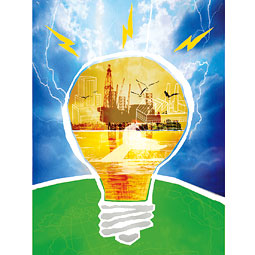Powerful solutions from young minds
At Washington State University’s inaugural high school energy competition on May 10, Bohler Gymnasium on the Pullman campus buzzed with the ideas and enthusiasm of more than 350 high school students.
Teams from across the state were invited to present ideas for sustainable living in one of four areas: technology, design, personal behavior, or society/public policy.

Eighty-six teams gathered to share ideas that ranged from … » More …
